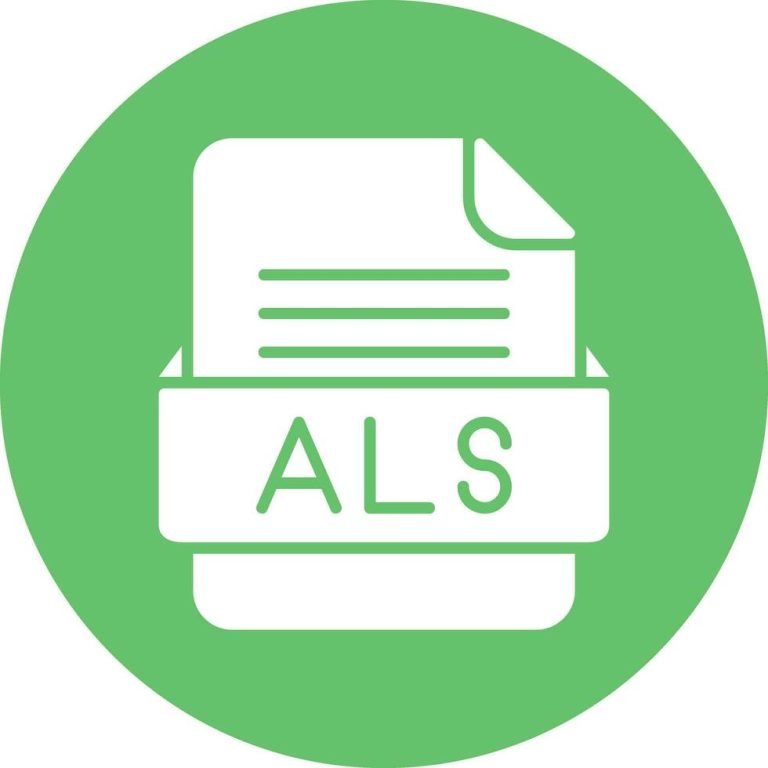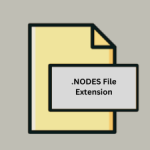.ALS File Extension

Ableton Live Set File
| Developer | Ableton |
| Popularity | |
| Category | Audio Files |
| Format | .ALS |
| Cross Platform | Update Soon |
What is an ALS file?
The .ALS file extension is commonly associated with audio files created and used by Ableton Live, a professional-grade digital audio workstation (DAW) software.
These files store various elements of audio projects, including audio clips, MIDI data, effects, and arrangement information.
.ALS files are crucial for saving and sharing Ableton Live projects, allowing users to collaborate on music production and preserve their work.
More Information.
Ableton Live was designed as a live performance tool for electronic musicians and DJs. It soon evolved into a comprehensive DAW, and .ALS files became essential for composing, recording, and mixing music.
These files allow users to save and load entire projects, preserving the creative process and enabling efficient collaboration.
Origin Of This File.
The .ALS file format was developed by Ableton AG, a German software company founded in 1999. Ableton Live, introduced in 2001, quickly gained popularity among musicians, producers, and DJs for its unique features and intuitive interface.
.ALS files became synonymous with Ableton Live projects, facilitating the seamless exchange of music production data.
File Structure Technical Specification.
The .ALS file format is a binary file that encapsulates a wide array of data types, including audio samples, MIDI sequences, device configurations, and automation data.
It stores information about the arrangement view, session view, and all associated settings within an Ableton Live project.
The technical specifications of .ALS files are proprietary to Ableton and subject to updates with each software version.
How to Convert the File?
Windows:
- Open Ableton Live on your Windows computer.
- Load the .ALS file you want to convert.
- Make any necessary adjustments to the project or arrangement.
- Click on “File” in the menu bar.
- Select “Export Audio/Video” or a similar option.
- Choose the export settings, including the file format (e.g., WAV, MP3) and the export location.
- Click the “Export” or “Start” button to begin the conversion process.
- Once the conversion is complete, you’ll have the audio file in the chosen format.
Linux:
- Run Ableton Live on your Linux system using Wine or other compatibility layers.
- Load the .ALS file within Ableton Live.
- Follow the same steps as outlined for Windows to export the project in the desired audio format.
macOS:
- Open Ableton Live on your Mac.
- Load the .ALS file you want to convert.
- Make any necessary adjustments to the project or arrangement.
- Click on “File” in the menu bar.
- Select “Export Audio/Video” or a similar option.
- Choose the export settings, including the file format (e.g., WAV, MP3) and the export location.
- Click the “Export” or “Start” button to begin the conversion process.
- Once the conversion is complete, you’ll have the audio file in the chosen format.
Android:
- Export your .ALS project in Ableton Live on a computer to a compatible audio format (e.g., MP3 or WAV).
- Transfer the exported audio file to your Android device using a USB cable, cloud storage, or email.
- Use an Android audio conversion app, if necessary, to further convert the audio file to a different format on your Android device.
iOS:
- Export your .ALS project in Ableton Live on a computer to a compatible audio format (e.g., MP3 or WAV).
- Transfer the exported audio file to your iOS device using a cloud storage service, email, or a file transfer app.
- Use an iOS-compatible audio conversion app, if necessary, to convert the audio file to a different format on your iOS device.
Advantages And Disadvantages.
Advantages:
- Comprehensive Project Storage: .ALS files contain all the elements of an Ableton Live project, making it easy to share and collaborate on music compositions.
- Cross-Platform Compatibility: Ableton Live is available on Windows and macOS, ensuring compatibility across both major operating systems.
- Efficient Workflow: Ableton Live’s unique interface and .ALS file formats are designed to enhance creativity and workflow efficiency for musicians and producers.
Disadvantages:
- Proprietary Format: The .ALS format is specific to Ableton Live, which may limit compatibility with other DAWs.
- Large File Sizes: Projects with numerous audio clips and high-quality samples can result in large .ALS files, which may be challenging to manage and share.
- Learning Curve: Ableton Live, while powerful, has a learning curve, which might be intimidating for beginners.
How to Open ALS?
Open In Windows
- Ensure you have Ableton Live installed on your Windows computer.
- Double-click the .ALS file you want to open.
- Ableton Live will launch, and the project contained in the .ALS file will open automatically.
Open In Linux
- While Ableton Live is not officially supported on Linux, you can try running it using compatibility layers like Wine.
- Install Wine on your Linux system if you haven’t already.
- Download the Windows version of Ableton Live from the official Ableton website.
- Run Ableton Live through Wine and use it to open the .ALS file.
Open In MAC
- If you’re using a Mac, ensure you have Ableton Live installed.
- Double-click the .ALS file, and Ableton Live will open with the project.
Open In Android
- Ableton Live is not available for Android devices. To work with .ALS files on Android, you’ll need to export your Ableton Live project to a compatible audio format (e.g., MP3 or WAV) on a computer.
- Transfer the exported audio file to your Android device.
- Use an Android audio player or a digital audio workstation (DAW) app that supports the imported audio format to open and play the file.
Open In IOS
- Ableton Live is not available for iOS devices. Similar to Android, you’ll need to export your Ableton Live project to a compatible audio format on a computer (e.g., MP3 or WAV).
- Transfer the exported audio file to your iOS device.
- Use an iOS-compatible audio player or DAW app that supports the imported audio format to open and play the file.
Open in Others
- To open .ALS files in other operating systems or digital audio workstations (DAWs) that are not natively compatible with Ableton Live’s .ALS format, you’ll need to export your project from Ableton Live in a widely supported audio format such as WAV or MP3.
- Then, you can import this exported audio file into your desired software or operating system for further editing or playback.
- Keep in mind that compatibility with third-party software may vary, so consult the documentation of the software you intend to use for more specific instructions on importing audio files.













